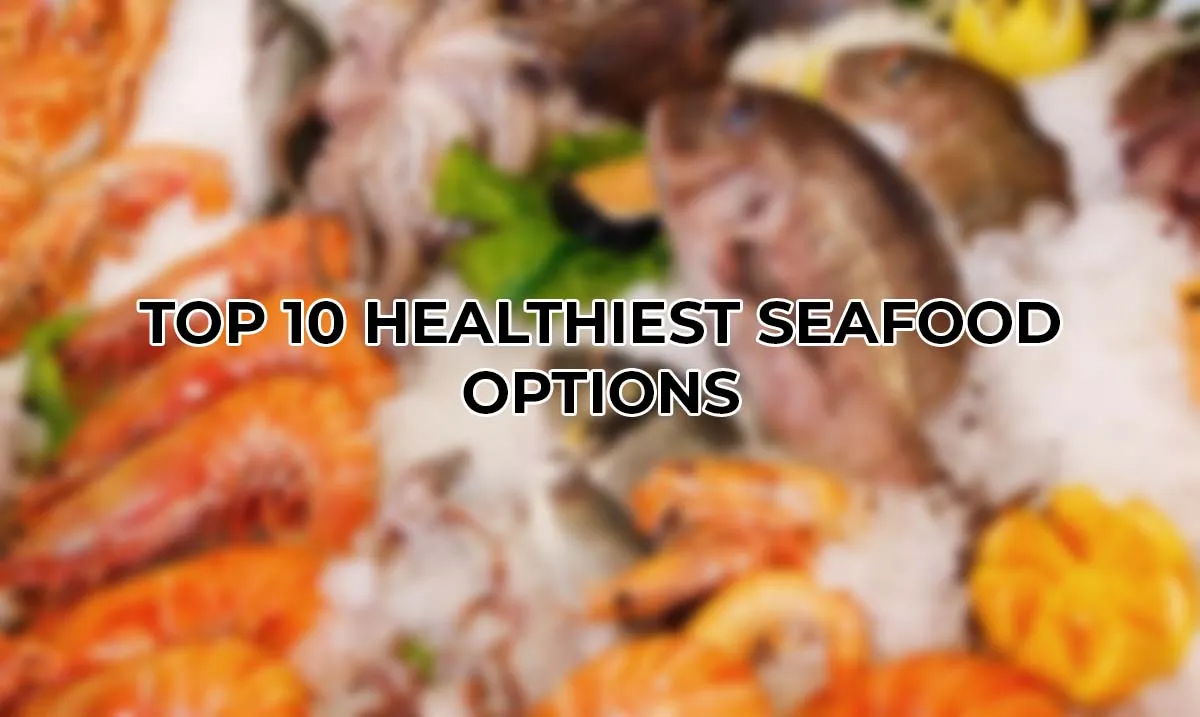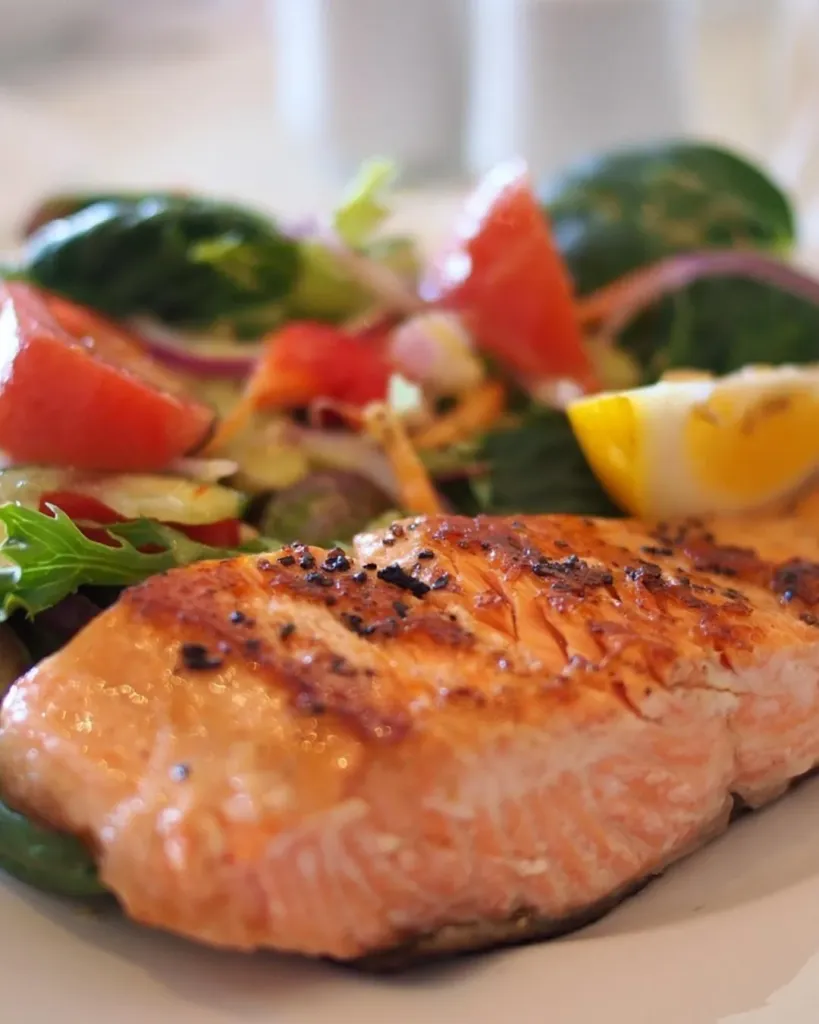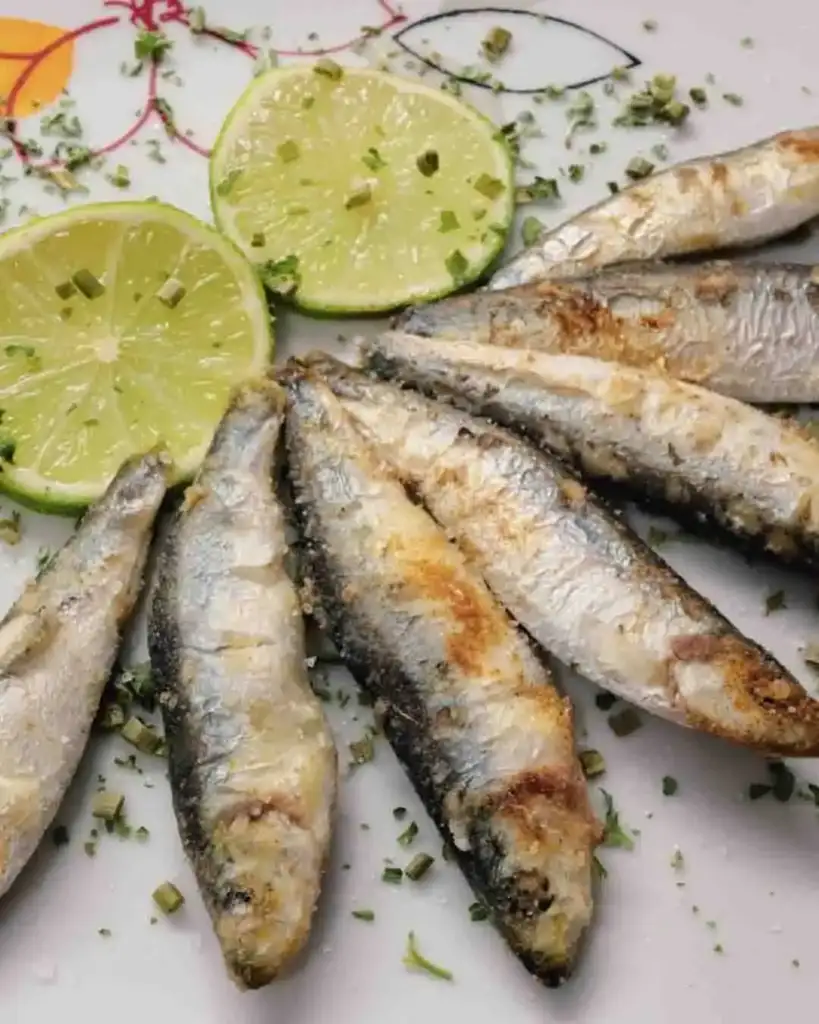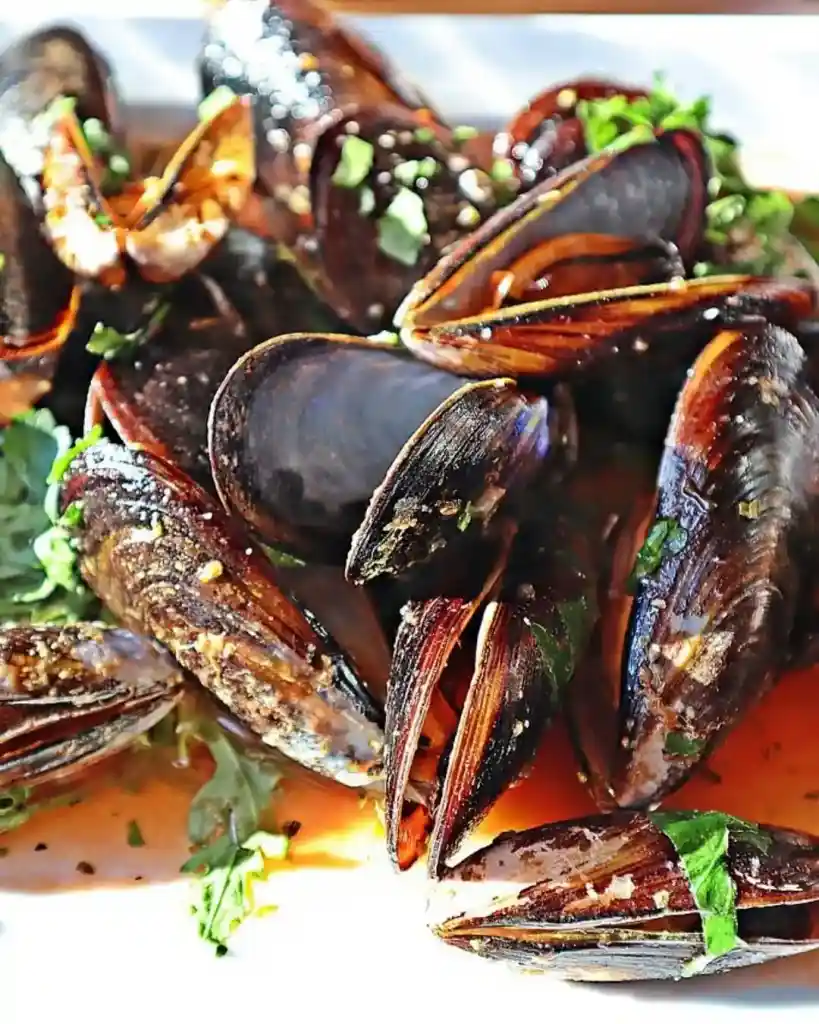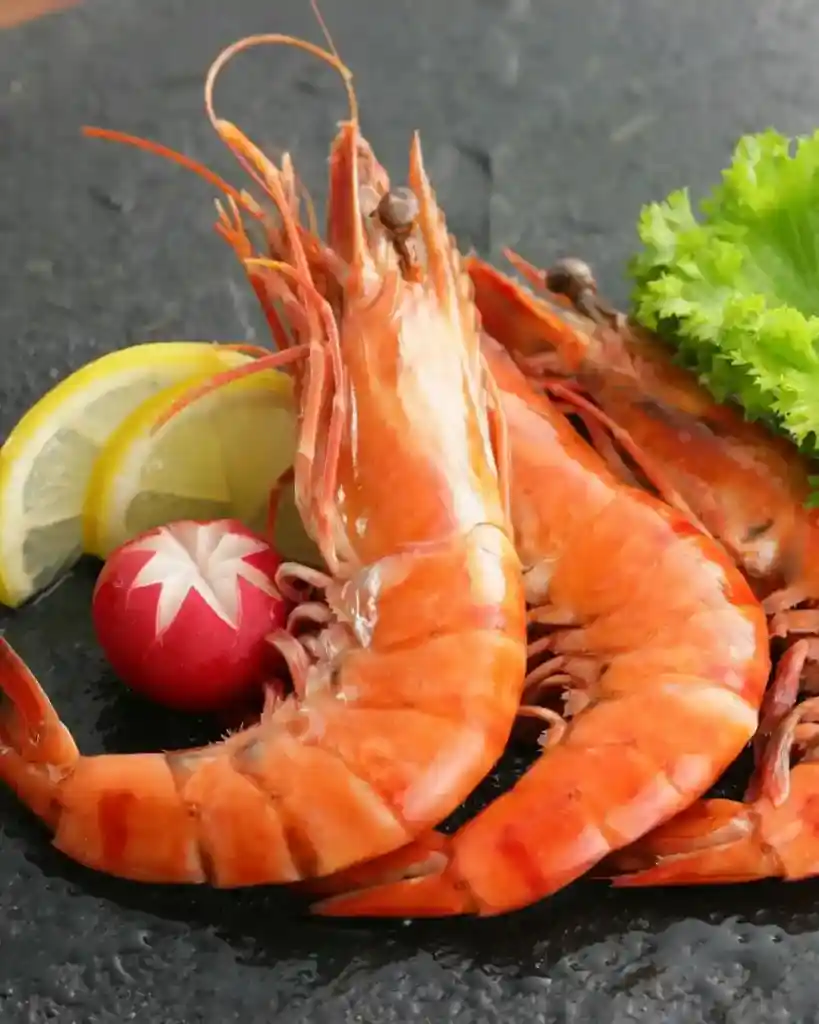I remember my grandmother’s weathered hands carefully preparing fish every Friday night. “The sea gives us what our bodies need,” she would say, her wisdom passed down through generations of coastal living.
Today, I’m sharing the ocean’s best-kept secrets the top 10 healthiest seafood options that deserve a place on your dinner table. These choices aren’t just nutritionally superior; they’re doorways to delicious meals that nourish both body and soul.
So, let’s dive into the azure depths and discover these underwater treasures that can revolutionize your approach to healthy eating. Your body will thank you for making these simple yet powerful additions to your weekly meal rotation.
1. Salmon: The Omega-3 Superstar
Salmon is the undisputed champion of heart-healthy seafood. Its vibrant pink flesh signals the presence of astaxanthin, a powerful antioxidant that complements its famous omega-3 content.
Wild-caught varieties typically offer superior nutritional benefits compared to farmed alternatives. The omega-3 fatty acids in salmon help combat inflammation throughout the body and support brain health.
Just two servings of salmon weekly can significantly reduce your risk of developing cardiovascular disease. Research shows these same fatty acids may help prevent cognitive decline as we age.
Health benefits of Salmon:
- Rich in heart-healthy fats
- Incredible brain-boosting nutrients
- Wild-caught preferred
- Supports cardiovascular health
- Reduces inflammation
Salmon’s versatility in the kitchen makes it approachable for even novice cooks. Whether grilled with a simple lemon-dill sauce or baked with herbs, its rich flavour satisfies while delivering maximum nutrition.
For sustainable choices, look for Alaskan salmon, which comes from carefully managed fisheries. The robust taste of wild salmon reflects its natural diet and active lifestyle in open waters.
2. Tuna: Protein-Packed Powerhouse
Tuna delivers an impressive protein punch with minimal calories, making it a favourite among fitness enthusiasts. A single serving provides about 20 grams of complete protein to support muscle maintenance and growth.
This lean fish contains selenium, an essential mineral that acts as an antioxidant. Selenium supports proper thyroid function and helps strengthen your immune system against harmful pathogens.
Light canned tuna offers an affordable, convenient option for healthy meals. Choose varieties packed in water rather than oil to keep the calorie count low while maximizing the protein benefit.
Health benefits of Tuna:
- Lean protein source
- Low in calories
- High in selenium
- Supports muscle growth
- Boosts metabolic health
Fresh tuna steaks provide a meaty texture that satisfies even dedicated carnivores. When seared rare to medium-rare, tuna offers a steak-like experience with far less saturated fat than beef.
To address mercury concerns, limit albacore tuna to once weekly while enjoying light tuna varieties up to three times weekly. This balanced approach maximizes benefits while minimizing risks.
3. Sardines: Tiny Fish, Massive Benefits
Don’t let their small size fool you—sardines deliver outsized nutrition in every bite. These little fish are consumed whole, so you benefit from calcium-rich bones and nutrient-dense organs.
As one of the most sustainable seafood choices, sardines reproduce quickly and have healthy population numbers. Their small size means they contain minimal mercury compared to larger predatory fish.
Sardines contain more vitamin D than most other food sources. Many Americans lack this crucial vitamin, which supports calcium absorption, immune function, and mood regulation throughout the year.
Health benefits of Sardins:
- Calcium-rich
- Sustainable seafood choice
- Packed with vitamin D
- Supports bone health
- Excellent for heart wellness
Sardines’ portable, shelf-stable nature makes them perfect for healthy eating on the go. Pack them for lunch with whole-grain crackers and avocado for a nutrient-dense meal requiring zero cooking.
Their intense flavour becomes milder when paired with acidic ingredients like lemon juice or tomato sauce. Mediterranean cuisines showcase sardines’ versatility in pasta, salads, and appetizers.
4. Mackerel: Nature’s Multivitamin
Mackerel deserves recognition as one of the most nutrient-dense fish in the sea. This oily fish contains a perfect balance of protein, omega-3s, and essential vitamins that support overall health.
Consider mackerel nature’s multivitamin. Each serving provides significant amounts of vitamins B12, D, and selenium. These nutrients support energy production, bone health, and thyroid function.
The distinctive flavour of mackerel stands up beautifully to bold seasonings and cooking methods. Try it smoked, grilled, or pickled for different culinary experiences that showcase its unique character.
Health benefits of Mackerel:
- Omega-3 rich
- Supports immune system
- Improves skin health
- Reduces inflammation
- Enhances brain function
Atlantic mackerel represents a sustainable choice with healthy population numbers. Choosing this variety over Spanish or King mackerel also helps minimize your mercury exposure.
The anti-inflammatory benefits of mackerel’s omega-3 content may help reduce symptoms of conditions like arthritis. Regular consumption supports joint health and mobility as we age.
5. Trout: The Freshwater Marvel
Trout offers an excellent alternative for those who find salmon too expensive for regular consumption. This freshwater relative provides similar nutritional benefits at a more accessible price point.
Rainbow trout from U.S. farms represents one of the most environmentally friendly protein sources available. These operations typically use closed systems that minimize impact on surrounding ecosystems.
The mild, delicate flavour of trout appeals to those who typically avoid “fishy” tastes. Even seafood sceptics enjoy its subtle sweetness and tender texture when properly prepared.
Health benefits of Trout:
- Low in mercury
- High-quality protein
- Supports eye health
- Promotes muscle recovery
- Excellent for weight management
Trout contains impressive amounts of vitamin B12, which supports nerve function and helps your body produce DNA. A single serving provides more than 100% of your daily requirement.
The selenium in trout works synergistically with its omega-3 content to protect cells from oxidative damage. This combination helps support a healthy immune system and may reduce cancer risk.
6. Oysters: The Nutrient-Dense Delicacy
Oysters represent nature’s most concentrated source of zinc, containing more of this immune-boosting mineral than any other food. Just six medium oysters provide over 500% of your daily zinc needs.
These remarkable bivalves filter and clean the water where they grow. Sustainable oyster farming improves water quality and creates habitat for other marine species.
Beyond zinc, oysters provide exceptional vitamin B12, copper, and selenium levels. This nutrient profile supports energy production, collagen formation, and thyroid health.
Health benefits of Oysters:
- Zinc powerhouse
- Supports immune function
- Improves reproductive health
- Rich in vitamin B12
- Enhances skin glow
Oysters’ legendary reputation as an aphrodisiac has some scientific backing. Their zinc content supports reproductive health in both men and women by promoting hormone production.
Raw oysters showcase their briny, mineral-rich flavour most prominently. However, they’re equally delicious when roasted, grilled, or incorporated into soups and stews for those who prefer them cooked.
7. Clams: Small but Mighty
Clams are the top food source of iron, surpassing even red meat. This makes them invaluable for preventing anaemia, especially for those who limit or avoid meat consumption.
A single serving of clams provides over 3,000% of your daily vitamin B12 requirement. This essential nutrient supports nerve function, DNA production, and the formation of healthy red blood cells.
Clams low-calorie count and high protein make them perfect for weight management. They provide impressive nutrition without excessive calories or unhealthy fats.
Health benefits of Clams:
- Iron-rich
- Supports blood health
- Low in calories
- High in protein
- Boosts energy levels
The chewy texture and sweet, briny flavour of clams work beautifully in pasta dishes, chowders, and stir-fries. Their versatility extends across numerous culinary traditions worldwide.
Farmed clams represent one of the most sustainable seafood choices available. Their production requires no feed input and improves surrounding water quality through natural filtration.
8. Mussels: The Forgotten Superfood
Mussels deliver exceptional nutrition at an affordable price point. These blue-black shells contain some of the most nutrient-dense meat in the seafood category.
Mussels’ impressive protein quality rivals that of land-based sources. A serving provides about 20 grams of complete protein containing all essential amino acids.
Vitamin B12 appears in extraordinary amounts in mussel meat. This vital nutrient supports energy production, nervous system function, and the creation of DNA.
Health benefits of Mussels:
- High in vitamin B12
- Supports brain health
- Excellent protein source
- Promotes muscle growth
- Enhances cognitive function
Mussels omega-3 content rivals that of many finfish while providing a sustainable alternative. Mussel farming has a minimal environmental impact and actually improves water quality.
Their sweet, tender meat takes on flavours beautifully in various cuisines. Whether steamed with white wine and garlic or added to paella, mussels transform everyday dishes into nutritional powerhouses.
9. Shrimp: Lean Protein Delight
Shrimp offers impressive protein with minimal calories, making it ideal for weight management. These popular crustaceans provide about 24 grams of protein per 100-gram serving.
The astaxanthin in shrimp acts as a powerful antioxidant in the body. This compound helps fight inflammation and may protect the skin against UV damage from within.
Selenium appears in significant amounts in shrimp meat. This essential mineral supports thyroid function and helps your body produce antioxidant enzymes that protect cells.
Health benefits of Shrimp:
- Low-calorie protein
- Quick and easy to prepare
- Rich in antioxidants
- Supports metabolism
- Promotes heart health
Cooking shrimp takes just minutes, making them perfect for quick, healthy meals. Their versatility shines across global cuisines, from stir-fries to tacos to classic shrimp cocktails.
For sustainable options, look for U.S. wild-caught or responsibly farmed varieties. These choices help minimize environmental impact while providing maximum nutritional benefit.
10. Crab: Ocean’s Protein Treasure
Crab meat provides premium protein with minimal fat and calories. This makes it an excellent choice for those building lean muscle or managing weight while enjoying the luxurious flavour.
Crab’s impressive vitamin B12 content supports nerve function and helps your body convert food into energy. Just one serving exceeds your entire daily requirement.
Crab contains significant amounts of phosphorus, an essential mineral for bone health. This nutrient works alongside calcium to maintain skeletal strength throughout life.
Health benefits of Crab:
- Low in fat
- High in protein
- Rich in selenium
- Supports muscle health
- Boosts immune system
The sweet, delicate flavour of crab meat requires minimal seasoning to shine. Simple preparation methods best showcase its natural goodness while preserving its nutritional value.
For sustainable choices, choose Alaskan king crab or stone crab claws from managed fisheries. These options allow you to enjoy this delicacy with environmental peace of mind.
How to Add More Healthy Seafood to Your Diet
If you’re new to seafood, start small. Begin with milder options like scallops or shrimp before exploring more distinctive flavours like sardines or mackerel.
Canned options provide excellent nutrition with maximum convenience. Keep sardines, salmon, or crabmeat in your pantry for quick, healthy meals when time is tight.
Frozen seafood often retains more nutrition than “fresh” seafood transported for days. Don’t hesitate to explore the freezer section for quality options.
Consider a weekly “seafood night” as a simple way to ensure these nutritional powerhouses regularly appear on your table. Even once weekly makes a significant difference.
For children, introduce seafood early and make it fun. My kids love “ocean explorer” nights, where we try new seafood together and learn about where it comes from. You can check A Complete Alphabetical List of Foods A to Z for getting ideas about foods worldwide.
Source Links
- Why is it important to eat seafood and how often should I eat it? – https://ask.usda.gov/s/article/How-often-should-I-eat-seafood
- Health Benefits of Seafood Consumption – https://www.ars.usda.gov/news-events/news/research-news/2015/consumers-missing-out-on-health-benefits-of-seafood-consumption/
- Advice about Eating Fish – https://www.fda.gov/food/consumers/advice-about-eating-fish
- Health Benefits of Seafood – https://www.seafoodhealthfacts.org/medical-professionals/general-information/
- Nutritional Benefits of Seafood (PDF) – https://aquaculture.ca.uky.edu/sites/aquaculture.ca.uky.edu/files/srac_7300_nutritional_benefits_of_seafood.pdf
- Start Seafood Early for a Lifetime of Benefits – https://aboutseafood.com/blog/from-babies-to-baby-boomers-usdas-new-2020-2025-dietary-guidelines-say-start-seafood-early-for-a-lifetime-of-benefits/
- Vitamin B12 – https://www.webmd.com/diet/vitamin-b12-deficiency-symptoms-causes
- Alaska King Crab – https://en.wikipedia.org/wiki/Red_king_crab
- Omega-3 – https://www.mayoclinic.org/diseases-conditions/heart-disease/in-depth/omega-3/art-20045614
